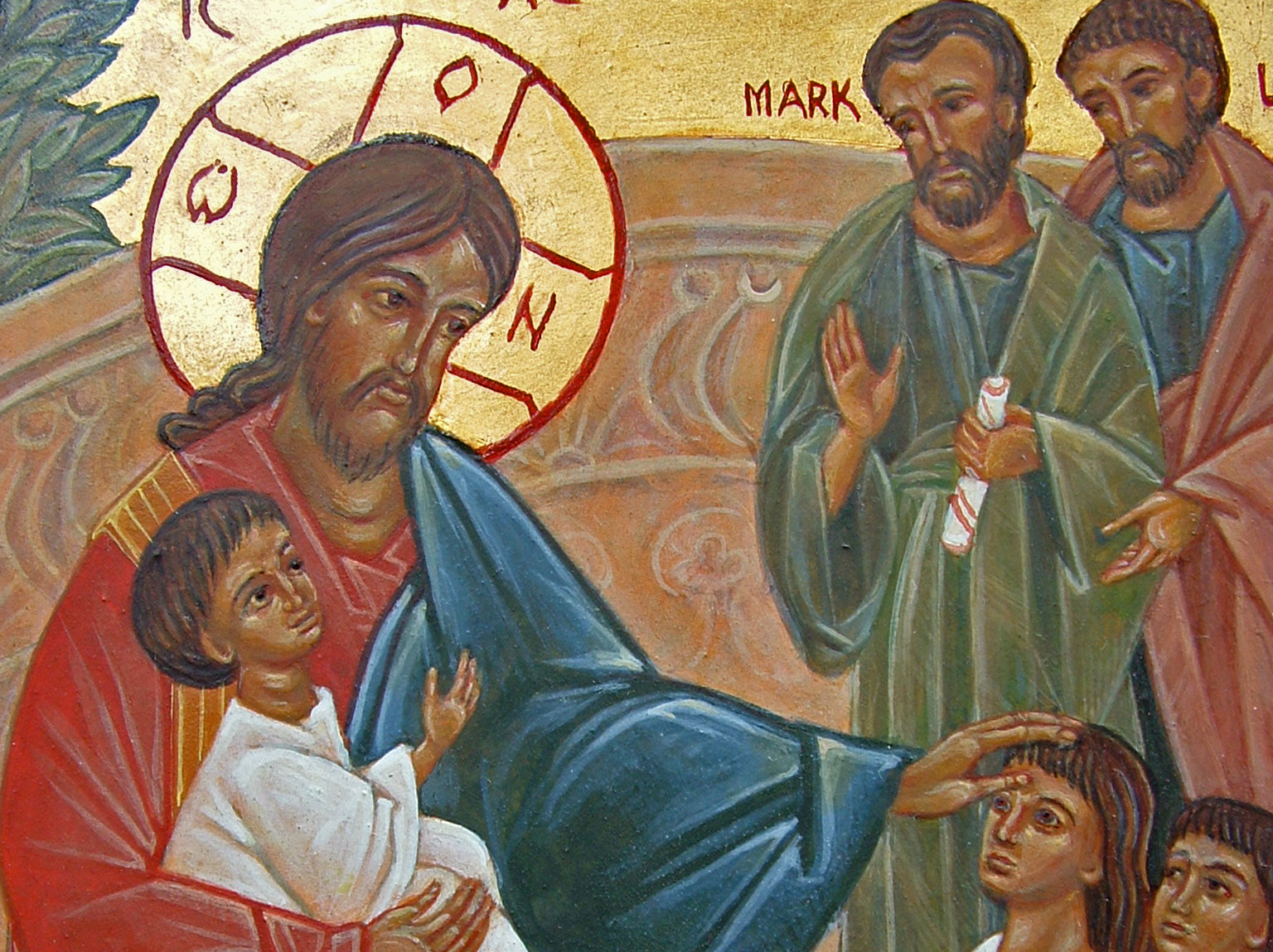
“But they did not understand what he was saying and
were afraid to ask him.” (Mark 9:32)
One of the great characteristics of Mark’s
Gospel, according to the great professor of New Testament John H. P. Reumann[i] under whom I studied while
in seminary, is that the disciples are depicted as being “really dumb.” Of
course, next to Dr. Reumann, just about everyone is pretty dumb. I prefer to think of the disciples in Mark
as being really human. In so many
ways they’re just like the rest of us dumbasses.
The story we get in the Gospel appointed
for Pentecost 18, Year B (Mark 9:30-37) is kind of like the one appointed for
the previous Sunday (Mark 8:27-38). In both these readings the disciples don’t
seem to be taking a very firm grasp on stuff Jesus is trying to explain as
simply as he can. He tells them, “The Son of Man is to be betrayed into human
hands, and they will kill him, and three days after being killed, he will rise
again.” (v.31) Okay. So what’s so hard about that?
Oh. Yeah. That rising again stuff. That
kind of weird jazz just doesn’t happen every day. And yet, didn’t the disciples
see Jesus perform myriad signs of supernatural power? What about this message
was giving them such a hard time? Was it the fact that they just couldn’t get
their brains around a resurrection? Or, maybe, they really didn’t dig this
betrayal and death thing..? Who knows?
So why don’t they just ask Jesus to
explain it? Are they afraid of looking dumb, or is it they simply don’t want to
have to deal with the unpleasant fact that Jesus would die as a criminal?
Either way, I get it. There’s messy stuff going on all around us, and signs and
portents that things are going to get even crappier, and I really don’t want to
think about it. For example, when we see “hundred year” storms occurring every year, we just might get the
message that the earth’s climate is changing—and not in a good way for the
likes of us. But who wants to think about that?
Nope. The easiest thing is to ignore the
hard questions, turn on America’s Got Talent,
and bury our head in the sand of trivialities. That’s what I’m thinking
these boys in our story are doing. They don’t want to face the hard truth of
Jesus and his message facing rejection and violence, so they start mixing it up
in a silly argument over which one of them has more street cred. Which one is
the greatest?
Now that’s a really dumb thing to argue
about. Of course, to us, there’s never anything trivial or silly about our
sense of self-worth, is there? We’re always ready to pull out the switch-blades
as soon as someone acts like they’re better than us. We just love doing that
kind of stuff. But how can you really tell who is greatest? I mean, what does
that even mean?
Oh, sure. You can trot out statistics. You
can say, “I did more of so-and-so than you did.” But what does any of that prove?
We argue about greatness all the time. Who is the greatest athlete, football
team, chef, actor, writer, musician, statesman, president, preacher, etc., etc.
The list is endless and the criteria for judging is highly subjective. The
Philadelphia Eagles may be the greatest team in the NFL today, but what will
happen by the end of the season? The problem with greatness is that there will
always be someone greater. Not only
is greatness subjective, it is really ephemeral. It doesn’t last.
The Elizabethan playwright Christopher
Marlowe, in his Edward II wrote:
“Base fortune, I now see, that in thy
wheel
There is a point, to which when men aspire
They tumble headlong down: that point I
touch’d,
And, seeing there was no place to mount up
higher,
Why shall I grieve at my declining fall?”[ii]
So what do we make of this story? And what’s
up with Jesus picking up a small child in verse 37? First, I’d say that it’s
certainly our nature to avoid tough questions about our faith, our mission, and
our meaning. Avoiding the questions, however, isn’t going to answer them. True
obedience to Christ is going to cause us some inconvenience in this world, and
there’s no ignoring that fact. Secondly, the way we judge our self-worth is
always going to be flawed. It will be temporary and subjective. Moreover, our
resume of achievements, unless it’s grounded in the love of the Savior who died
for us, is never going to satisfy us. And, finally, I think Jesus is showing us
that the only way to look to greatness (and I don’t hear Donald Trump or, for
that matter, any politician saying
this) is to look to the weakest and the most vulnerable: the children, the
refugees, the poor, the addicts, the prisoners, the elderly, the disabled—all the
ones nice people would rather pretend didn’t exist. In such as these we may not
find the world’s acclaim. In fact, we may even find its scorn. But we will find
Jesus.
God bless you, my friend. I’m glad you
shared this time with me.
[i]
John H. P. Reumann (1927-2008) was a leading Lutheran clergyman, ecumenist,
scholar, teacher, and author. He was one of the foremost leaders in the Lutheran-Roman
Catholic dialogues, a Guggenheim Fellow, and an all-around really smart guy. I
think he’d like it that I mentioned him in this end note. He actually read end notes.
[ii] This
probably means nothing to you, but I just thought it would be cool to include a
quote from an obscure Elizabethan playwright
No comments:
Post a Comment